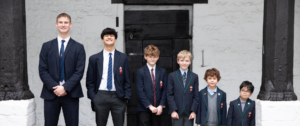On 8 – 17 March we honoured British Science Week, exploring the theme of Time. This year’s activities demonstrated that science isn’t confined to Science lessons – it’s everywhere, all the time and is woven into every subject we teach.
Teachers across departments integrated scientific principles into their subjects. Geography delved into experiments on erosion, Maths explored statistical analysis using reaction times and in Art pupils tested paper strength for quilling projects and made an image using a simple camera obscura. History held a CSI-style science investigation and studied Mayan astronomy, DT crafted sun dials and pupils explored the connection between pitch and vibrations in Music. In PE, pupils timed different activities to calculate speed and investigated the buoyancy of the pool at the Spectrum.
The cross-curricular activities did not stop there! Pupils engaged in a plastic debate in Drama, studied the lighting in theatres and created a dramatic representation of the water cycle. Our English department had pupils writing letters to MPs about plastic pollution and reading science texts. There was a variety of experiments in Science lessons including making biodegradable plastic, creating timers, making rollercoasters and studying water density.
Pupils joined a live lesson about the Ocean & Climate hosted by Encounter Edu and counted plastic waste to add to The Big Plastic Count, a citizen science investigation to build even more evidence about what’s really happening to our plastic.
During breaktimes, we hosted a ‘best paper aeroplane’ competition where pupils had to create a design that could stay in the air the longest. We also took submissions for a poster making competition centred around the theme of Time. Pupils were given the brief ‘What does time mean to you and how does it relate to the Science you have learnt about?’.
British Science Week was a resounding success, with pupils thoroughly enjoying the integration of Science across subjects. Science week has helped to further enrich the pupils’ understanding of scientific concepts and also developed a mindset to look for Science beyond the classroom.

